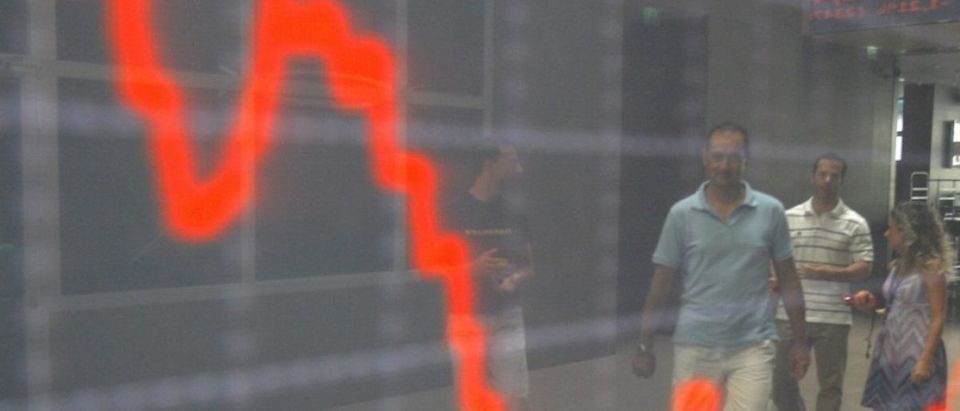In the wake of the anomalous market volatility that shook Wall Street this week, some investors are pointing to a little known risk-centric investment strategy as the primary cause.
Risk parity funds, first used by the world’s largest hedge fund, Bridgewater Associates, differ from more traditional portfolio management strategies in that asset allocation is not predetermined; so rather than a strict 60/40 mix of stocks and bonds, assets will be moved around automatically based on the current state of the market.
Critics allege that this approach can exacerbate massive selloffs — like the one that rocked the market just days ago — because as soon as stocks start sliding, hedge funds’ automated trading algorithms kick in and start shifting assets to the more secure bond market.
“The biggest issue with risk parity, and all systematic, semi-passive strategies, is they all act simultaneously when the market is on autopilot,” hedge fund manager Katina Stefanova told The Wall Street Journal. Stefanova’s fund, Marto Capital, bets against risk parity funds using financial instruments that yield returns when market volatility increases; her fund is up 4 percent on the year.
Risk parity fund managers explained to the WSJ that, unlike more traditional funds that scrambled as the market fell more than 1,800 points in two days, their trading activity was low in the midst of the selloff because their strategy is premised on volatility.
“We have done pretty much no trading in risk parity” since Friday, AQR Capital Management LLC co-founder Clifford Asness told the WSJ.
While some are pointing to risk parity funds as the central culprit behind the recent volatility, Treasury Secretary Steven Mnuchin cast blame on a broader trend that’s seen surging popularity in recent years: algorithmic trading.
Mnuchin said Monday that the computerized trading “definitely had an impact” on the massive selloff. His argument is that the automated nature of much of today’s trading speeds panic as programs respond immediately to negative market signals and begin selling at a speed many times faster than the manual traders of the past.
Despite the temporary volatility, Mnuchin remained generally optimistic about the long term state of the market.
“They have been quite volatile today,” he said. “I normally wouldn’t be looking at my iPhone. But given the market moves I’m checking it. … I’m not overly concerned about the market volatility. I think the fundamentals are quite strong.”

The Daily Caller News Foundation is working hard to balance out the biased American media. For as little as $3, you can help us. Make a one-time donation to support the quality, independent journalism of TheDCNF. We’re not dependent on commercial or political support and we do not accept any government funding.
All content created by the Daily Caller News Foundation, an independent and nonpartisan newswire service, is available without charge to any legitimate news publisher that can provide a large audience. All republished articles must include our logo, our reporter’s byline and their DCNF affiliation. For any questions about our guidelines or partnering with us, please contact licensing@dailycallernewsfoundation.org.


